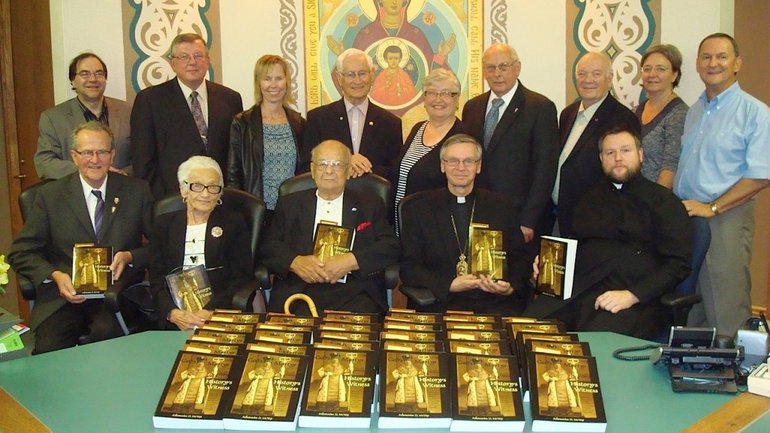Blessed Budka Biography Published

God’s Martyr, History’s Witness: Blessed Nykyta Budka the First Ukrainian Greek-Catholic Bishop of Canada has been published by the Ukrainian Catholic Eparchy of Edmonton and the Metropolitan Andrey Sheptytsky Institute of Eastern Christian Studies.
God’s Martyr, History’s Witness is the first complete historical biography of Bishop Nykyta Budka. The author of the biography is Dr. Athanasius McVay.

“With this publication, the name and life of Blessed Bishop Nykyta Budka will find their proper place in the history of Ukrainians in Canada, in Canadian Catholic history, and in the history of Ukraine,” says Dr. Stella Hryniuk.
In his commentary to RISU fr. McVay noted that Nykyta Budka is an important figure in Ukrainian, Canadian, and Catholic history. His appointment on 15 July 1912, was the first time the Apostolic See of Rome named an Eastern Catholic bishop will full jurisdiction outside of the old continents of Europe and Asia. From an early age he became an educator and supporter of the Ukrainian people and supported their political and cultural freedom. He became one of hundreds of thousands of Ukrainian immigrants and encouraged Ukrainian immigration to Canada throughout his life. His mission being to sustain Canadian Ukrainian Greek-Catholics in their faith. Budka achieved government recognition of the Ukrainian Catholic Church in Canada as a legal entity. Facing the reality of assimilation he encouraged his flock to become good Canadians but dedicated himself to preserving Ukrainian religious and cultural identity. Bishop Budka’s story is one of endurance. For fifteen years he traveled unceasingly, visiting the Ukrainian settlements scattered across Canada and church communities, celebrating the sacraments, teaching, preaching and comforting the faithful. He invited many Ukrainian priests from Europe and ordained local recruits to serve as missionaries in Canada. He relied upon religious sisters, brothers, and priests to promote Catholic and bilingual education. He sponsored lay people in higher education so that they would become conscientious and self-sacrificing community leaders. He was a poor administrator but a fantastic missionary. He did not receive sufficient financial support from his flock and was forced to rely on grants from Roman Catholic bishops and organizations. He faced bankruptcy on several occasions. In a climate of intense proselytism he battled with many political and religious opponents who sought to draw his flock away from their Catholic Faith. He proved his Overwork, stress, and harsh conditions destroyed his delicate health. After requesting for an assistant bishop, finally he was asked to resign. For the next seventeen years he prvided moral support and ministered to Ukrainians under oppressive Polish, Nazi and Soviet regimes. Together with his fellow Ukrainian Catholic bishops, clergy, religious and laity, he was condemned by Soviet authorities. He died in a prison camp in far-away Kazakhstan. The Catholic Church numbers him among the heavenly martyrs and confessors of the Faith. His story can be described as a life of obedience, work, and love of the Lord Jesus Christ and God’s pilgrim people.









